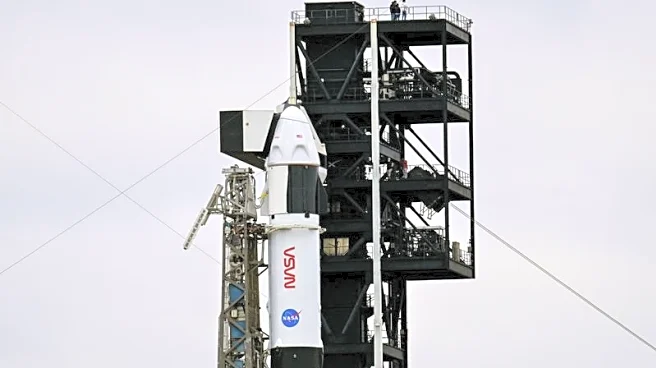What's Happening?
A new book titled 'The Origin of Language' by Madeleine Beekman, a professor emerita of evolutionary biology and behavioral ecology, presents a novel theory on the evolution of human language. The book argues that the prehistoric need for child-rearing assistance may have been a driving force behind the development of language. Beekman suggests that early humans, faced with the challenge of caring for vulnerable offspring, developed vocal communication as a means to cooperate and ensure survival. This perspective shifts the focus from traditional theories that emphasize male-dominated activities like hunting and toolmaking, to the role of familial care in human evolution.
Why It's Important?
The book's theory highlights the significance of cooperative child-rearing in shaping human evolution, suggesting that language may have originated from the need to communicate effectively about offspring care. This perspective challenges traditional views that prioritize competitive and aggressive activities in evolutionary narratives. By emphasizing the role of interdependence and care, Beekman's work could influence current understandings of human development and social structures. It also raises questions about modern parenting practices, suggesting that communal child-rearing might be more natural and beneficial.
What's Next?
The book invites further exploration into the role of cooperative care in human evolution, potentially influencing academic discourse and research in evolutionary biology and anthropology. It may also prompt discussions on modern parenting practices, encouraging a reevaluation of isolated child-rearing approaches in favor of more communal methods. Scholars and researchers might investigate other aspects of human development that could have been shaped by interdependence and care.
Beyond the Headlines
Beekman's theory underscores the importance of viewing human evolution through the lens of cooperation and care, rather than competition. This approach could lead to a broader understanding of human social structures and the development of other cultural traits. It also suggests that innovations like language may have been born from collective efforts, offering insights into how interdependence can drive human progress.










